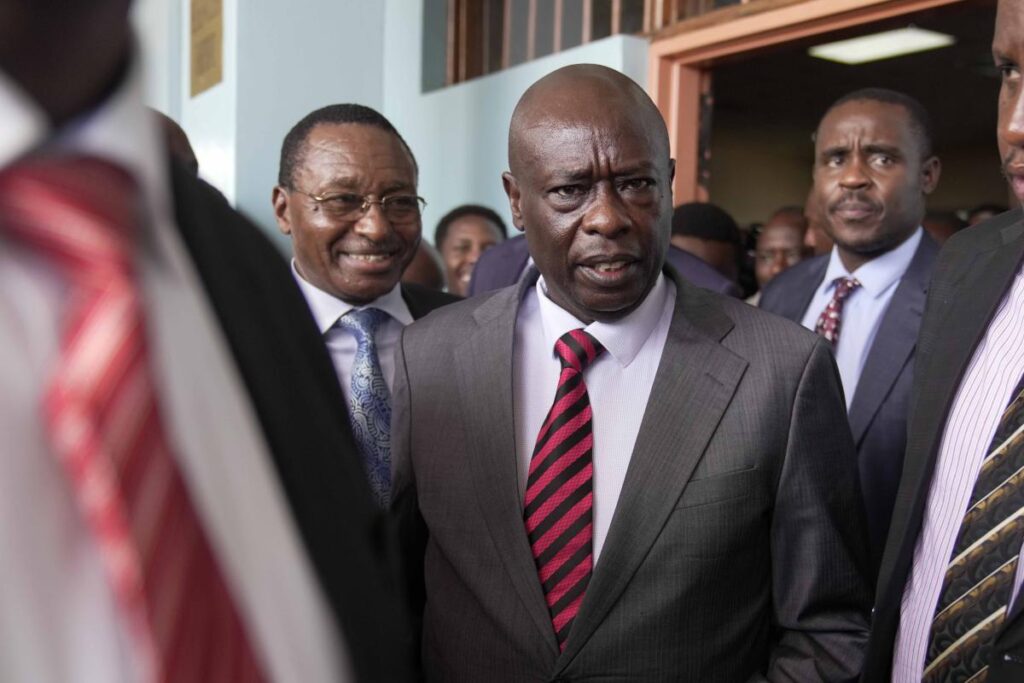In Nairobi, Kenya, a high court has recently paved the way for Kithure Kindiki to assume the position of Deputy President despite ongoing legal proceedings contesting the impeachment of his predecessor, Rigathi Gachagua. The three-judge panel ruled against a previous decision that aimed to halt Kindiki’s swearing-in, asserting that the suspension would create a political vacuum detrimental to governance. Gachagua was ousted from office on October 17, when more than two-thirds of legislators voted in favor of his impeachment based on charges including corruption, inciting ethnic division, and supporting anti-government protests. This rapid turn of events has sparked widespread scrutiny of the internal dynamics within the ruling United Democratic Alliance (UDA) and raised questions about the political landscape under President William Ruto.
The impeachment of Gachagua underscored the prevailing fractures within the UDA, particularly between Gachagua and President Ruto, both of whom were supposed to represent a unified front. The former Deputy President’s downfall has been attributed to his contentious stance on government policy regarding forced evictions, especially during periods of heavy rain that resulted in severe flooding and loss of life. The public fallout from Gachagua’s impeachment has revealed previously unnoticed tensions within the ruling party, amplifying speculation about Ruto’s consolidating power and how it might affect governance in Kenya moving forward.
Amidst the political turmoil, Gachagua is actively seeking to challenge the legitimacy of his impeachment in the High Court, asserting that the allegations against him are unfounded and that the impeachment hearings were conducted improperly. On the very day of the Senate vote, he experienced a significant health scare—chest pains that necessitated hospitalization. His legal team requested an adjournment to allow for further preparation, but it was denied after the prosecution claimed Gachagua had adequate opportunity to present his defense prior to the vote. This episode has prompted supporters to denounce the speed and fairness of the proceedings, suggesting that Gachagua was railroaded out of office.
As the legal challenges unfold, public sentiment is mixed regarding Gachagua’s impeachment and the broader implications for President Ruto’s administration. Although Ruto initially campaigned on a platform appealing to the nation’s poorer citizens, his recent efforts to raise taxes for debt repayment have led to significant public backlash. Critics argue that this shift places undue burden on the very populace he pledged to support, raising doubts about his commitment to inclusive governance. Consequently, this has forced Ruto to reconsider some of his proposed policies and undertake a Cabinet reshuffle to realign his administration with public interests.
The conflict and instability in leadership are reflective of deeper issues within Kenya’s political framework, where partisan disputes often culminate in crises such as the one experienced by Gachagua. The events surrounding his impeachment reveal the fragility of political alliances and the potential for dissent to catalyze significant shifts in power dynamics within the ruling party and the government at large. Additionally, they highlight the risks associated with a highly polarized political environment, where figures like Gachagua, despite holding influential positions, can quickly find themselves engulfed in controversies leading to their downfall.
As the situation continues to evolve, all eyes will be on the High Court’s forthcoming decisions regarding Gachagua’s appeal and the implications of Kindiki’s upcoming swearing-in. The dichotomy between Gachagua’s claims of political manipulation and the government’s portrayal of his impeachment as a necessary step for progress could set the stage for escalating tensions within Kenya’s political landscape. Future developments will likely shape the narrative of Ruto’s leadership and his capacity to hold his administration accountable while maintaining public trust amidst a backdrop of economic unrest and political strife.

